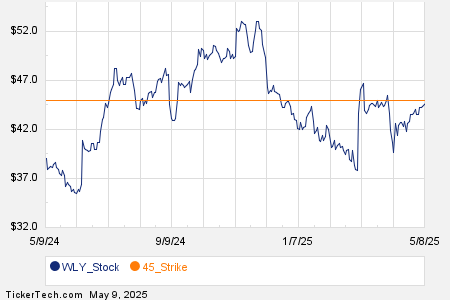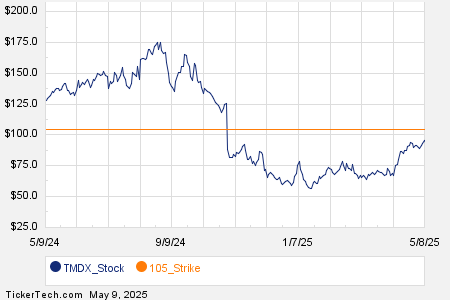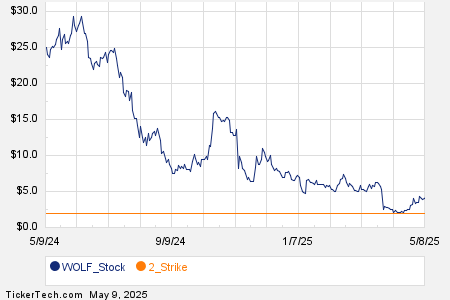Berkshire Hathaway’s Remarkable Growth and Future Prospects
Between 1964 and 2024, Berkshire Hathaway (NYSE: BRK.A) (NYSE: BRK.B) achieved an impressive 5,502,284% gain, while the S&P 500 (SNPINDEX: ^GSPC) gained 39,054% with dividends reinvested. On an annual basis, Berkshire rose 19.9%, compared to the index’s 10.4%, also including reinvested dividends.
Over these 60 years, Warren Buffett and his team transformed Berkshire from a modest family venture into a company boasting a market capitalization of $1.1 trillion as of this writing. This positions Berkshire uniquely within the market, as the only other U.S. companies exceeding a $1 trillion market cap are Microsoft, Apple (NASDAQ: AAPL), Nvidia, Alphabet, Amazon, and Meta Platforms.
At Berkshire’s recent annual shareholder meeting in Omaha, Nebraska, Buffett announced his plans to step down as chief executive officer at year-end while remaining chairman. Greg Abel, who oversees Berkshire’s non-insurance operations, will take over the CEO role.
Following this announcement, Berkshire’s stock fell 5.1% on Monday after reaching an all-time high on May 2. Some investors are concerned about Abel’s ability to lead Berkshire effectively.
Understanding Berkshire’s Growth Potential
Berkshire’s impressive history illustrates the power of compounding. It took 54 years to reach a half-trillion-dollar market cap in early 2018, but less than seven years to grow from that to $1 trillion in 2024.
Assuming a 10% annual increase in Berkshire’s stock price—similar to the S&P 500’s historical average—the company could double in value in just over seven years. Even a more conservative growth estimate of 5% would result in a doubling in just over 14 years.
This growth potential suggests that Berkshire could achieve a $2 trillion market cap with modest gains. However, the real question is whether it can remain a strong investment for long-term shareholders.
Key Growth Drivers for Berkshire Hathaway
1. Strategic Investments in Public Securities
Berkshire’s stock price is likely to increase if the value of its investments rises. This has been evident with successful holdings like American Express, Coca-Cola, and more recently, Apple.
Buffett highlighted at the annual meeting that Tim Cook has significantly increased Berkshire’s wealth through its Apple stake. If Berkshire invests heavily in another successful venture, similar to Apple, it could further boost the stock price.
2. Increasing Operating Earnings
The second factor influencing growth is the potential increase in operating earnings from Berkshire’s controlled businesses. Buffett emphasizes operating earnings over net income for a clearer picture of business performance.
Berkshire recently reported record operating earnings driven by its insurance sector. The previous year was exceptional for underwriting, but early Q1 2025 saw underwriting earnings drop significantly compared to Q1 2024, indicating normalization.
Berkshire benefits from insurance investment income through its float, which consists of unclaimed premiums. The float has historically compounded at a significant rate, increasing from $130 billion five years ago to approximately $173 billion as of March 31. In Q1 of this year, Berkshire generated $2.893 billion in insurance investment income, up from $1.087 billion a decade ago.
In addition to insurance, Berkshire’s diverse businesses—including manufacturing, services, retail, and its ownership in BNSF Railway and Berkshire Hathaway Energy—contribute to its strong operating earnings. Abel has played a crucial role in enhancing profitability at Berkshire Hathaway Energy and has taken on more responsibilities across its controlled assets.
3. Investor Sentiment
The final contributor to Berkshire’s market cap growth is investor sentiment. This factor may be more abstract compared to the others but significantly influences Berkshire’s stock price.
Buffett typically favors the price-to-book (P/B) ratio as a measure of Berkshire’s intrinsic value, as it reflects asset value rather than earnings per share, which can fluctuate due to its conglomerate structure.
Historically, a P/B ratio below 1.1 or 1.2 prompted share repurchases for Berkshire. However, due to soaring P/B ratios, the company has not repurchased any shares since Q2 2024, ending a 24-quarter streak. The current P/B ratio stands at 1.7, an increase from its 10-year median.
# Berkshire Hathaway: Is Its Growth Potential Worth the Investment?
Berkshire Hathaway’s Current Valuation
Berkshire Hathaway’s valuation has reached a price-to-earnings (P/E) ratio of 1.4, suggesting it may be slightly higher than historical averages.
Prospects for Growth Beyond $2 Trillion
Investors may find Berkshire Hathaway appealing if they believe the company can continue making smart public investments and enhance the operating earnings of its controlled businesses. Moreover, a sustained elevated valuation can be justified if confident in the company’s future.
Berkshire has a strong track record in managing its investments, particularly in the insurance sector. The company effectively earns income from its float while steering clear of the overleverage issues that affect many in the insurance industry.
Given Greg Abel’s leadership, it seems plausible that Berkshire Hathaway could surpass a market capitalization of $2 trillion within the next five to ten years.
Is Now the Right Time to Invest in Berkshire Hathaway?
Before making an investment in Berkshire Hathaway, consider the following:
The Motley Fool Stock Advisor has recently highlighted what they believe are the 10 best stocks to buy currently, with Berkshire Hathaway not included in this selection. The chosen stocks have the potential for substantial returns in the coming years.
For context, consider when Netflix was listed on December 17, 2004. An investment of $1,000 then would have grown to $623,103!* Similarly, Nvidia‘s inclusion on April 15, 2005, would have turned $1,000 into $717,471!
Notably, the Stock Advisor has an average return of 909%—a significant outperformance compared to the 162% of the S&P 500. Consider joining Stock Advisor for access to the latest top 10 list.
*Stock Advisor returns as of May 5, 2025
John Mackey, former CEO of Whole Foods Market, and other prominent industry figures serve on The Motley Fool’s board of directors. The Motley Fool has investments in various companies, including Berkshire Hathaway.
The views herein are those of the author and do not necessarily represent those of Nasdaq, Inc.





